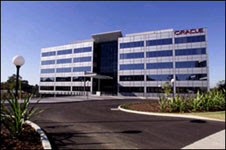"The rumours of my death have been greatly exaggerated" Mark Twain
So…SOA is dead. Apparently it died on the 1st of January 2009, so said Anne in her Burton Blog. With the recession, SOA budgets are being slashed; countless failures abound, with the odd success peaking above the sea of despair. The doom and gloom prophets are all saying, “we told you so”. So we turn our heads to some new saviour, the SOA offspring of mashups, SAAS and clouds.
The wrong approach
So why is there so much disillusionment? Probably because a lot of people just did not get it and the approaches they took were wrong. The recession has been a great opportunity for business to bullet wayward IT strategies that were not aligned to their business. So it is not a bad thing really. In my books, it is a good reality check. On the other hand SOA is old news, and our industry is often guilty of needing something new to talk about. But lets not go and run off to something new, when all it takes is understanding what we have today.
Getting back to basics
There is nothing wrong with SOA; in fact the intention of SOA to support transformation of organisations is pretty profound, but probably overwhelming for some. I agree with Anne when she said that SOA needs to be part of something bigger, such as organisational transformation. I have seen too many instances where organisations think that they are doing SOA, but all they are doing are technology projects focusing on aspects such as service-based integration, resulting often in poor ROI, no service reusability, and achieving no business alignment.
We have been afforded the opportunity, through many years of SOA experience, to reflect on what is required and what to avoid. Anne highlighted 10 reasons why SOA fails ranging from a lack of business alignment and case, through to skills and governance. Her arguments are sound and should be read by everyone who is interested in understanding what issues you need to address. David Linthicum in his five things articles talked about bigger issues at play, such as misrepresentation by vendors, and the requirement of strong leadership. While we can’t change some of things he spoke about, it is still good to be aware of what to watch out for.
Will SOA evolve, yes it will. That is a definite. But even with new approaches, we will still have to have the ground rules in place. There is no quick fix or magical elixir.
In the coming weeks the Red Room Team will discuss some key issues that need to be addressed if SOA-assisted transformation is to be successful.


2 comments:
How can you folks possibly claim "many years of experience" on something that's not even 5 years old, if that, and in that period has had more incarnations than the second coming?
See, it's the blatantly impossible and wild claims you folks blurt at every post that make the whole thing the target of jokes like this one:
http://www.flickr.com/photos/psd/1429468646/
But please feel free to ignore reality and continue the attempted obfuscation. Here, I'll help you: I'm OBVIOUSLY a dinossaur noob with nill experinece and knowledge of IT, who can't possibly evolve and "come up with the times".
Despite the fact I've been in IT longer than any of you have been ALIVE. But let's discount that simple reality: after all we got to keep in character with the whole SOA edifice...
Hi Noons.
I agree with you that SOA has been around for five years (although many a debate has occured on that point). That period, to me, is a long time in IT terms, (no malice or disinformation intended!) if you collectivelly analyse the experience gained throughout the globe. I suppose if you look at the rate of any technology changes (SOA standards and enabling technology included), there have been many itterations, and evolution will continue at great speed, however, take a look at the experience that has been gleaned during that period. Whether it is "many" or five years, applying service orientation to an architecture is no longer esoteric or bleeding edge. There are successfull organisations that are transforming and have applied service orientation to their architecture as an enabler, best practices exist and key learnings are being shared. The discussions I have with organisations today have matured from figuring out what SOA is, to how service orientation can assist business transformation and what is needed to be successful. I experience that first hand, and that's a fact.
The point I am trying to make is that IT is a trendy industry. Too much focus is spent of giving birth to, then killing jargon, by way of a fashion statement . Who knows what will happen to "web 2.0" and "cloud" next week! Instead we should be focusing on going back to basics by understanding the business, and pragmatically resolving their business challenges with the solutions at hand. By the way, who are "you people"?
Post a Comment